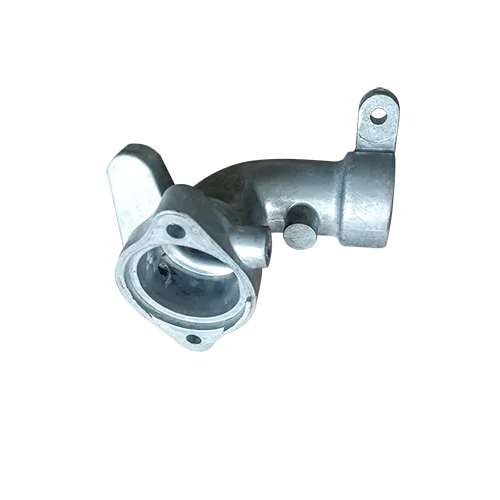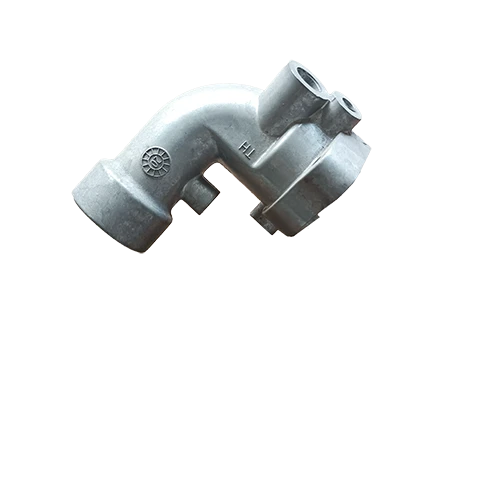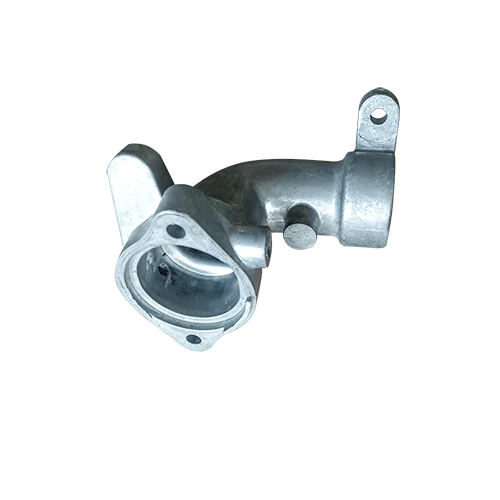Mobile:+86-311-808-126-83
Email:info@ydcastings.com
English
Automobile Accessories-Hebei Yuanda Trade Co., Ltd.|High Pressure Casting&Semi-Solid Processing
In the rapidly evolving automotive industry, automobile accessories have become critical components that demand exceptional precision, durability, and performance. This article explores the latest advancements in metal casting and processing technologies that are reshaping the production of automotive parts. Through an in-depth analysis of high pressure casting, semi-solid processing, and integrated design methodologies, we will examine how these innovations are driving efficiency, sustainability, and quality in modern vehicle manufacturing.

Core Technologies Driving Automotive Part Innovation
1. Casting Technology: Foundations of Automotive Manufacturing
According to the National Institute of Standards and Technology (NIST), casting processes account for approximately 15-20% of all automotive components. This critical manufacturing method is particularly vital for producing powertrain components and structural elements. Advanced casting techniques employed in Europe and the US demonstrate significantly higher efficiency and quality standards compared to traditional methods. These regions utilize digital technologies to optimize casting design, achieving scrap rates as low as 2-5%.
2. Die Casting Process: Precision Engineering for Modern Vehicles
The die casting process has become a cornerstone of automotive manufacturing. By applying high pressure to inject molten metal into molds, this method produces parts with exceptional dimensional accuracy and surface quality. The technology supports a wide range of alloys including aluminum and zinc, which offer superior strength-to-weight ratios. These properties are crucial for enhancing vehicle stability and safety, as noted in the NIST's 2023 materials science report.

3. Semi-Solid Processing: Pioneering Lightweight Solutions
Emerging semi-solid processing technologies are revolutionizing the production of magnesium and aluminum alloy castings. This method enables thinner wall thicknesses (1-1.5mm) while maintaining structural integrity. The technology addresses key challenges in magnesium alloy applications, including cost-effectiveness and performance optimization. As highlighted in NIST's 2022 manufacturing research, this innovation has enabled a 25% annual growth rate in magnesium alloy die casting production in North America.

Key Advantages of Modern Automotive Casting Technologies
1. Enhanced Production Efficiency
Advanced casting technologies significantly reduce manufacturing cycle times through automated process control systems. These innovations minimize material waste and energy consumption, aligning with global sustainability goals. The integration of digital twins in casting design, as recommended by NIST's 2023 industry guidelines, further optimizes production planning and resource allocation.
2. Environmental Sustainability
Modern casting processes incorporate eco-friendly practices that reduce emissions and waste. The adoption of closed-loop recycling systems for aluminum and zinc alloys has decreased the environmental footprint of automotive manufacturing. According to NIST's 2022 environmental impact study, these technologies can lower carbon emissions by up to 40% compared to traditional methods.
3. Superior Product Quality
State-of-the-art casting technologies ensure consistent part quality through real-time monitoring systems. The use of advanced alloy formulations, such as ADC-12 and A380, enhances mechanical properties while maintaining dimensional stability. These improvements directly contribute to the reliability and longevity of automotive components, as emphasized in NIST's 2023 quality assurance standards.

Technical Specifications Table
| Parameter | Specification |
|---|---|
| Material | ADC-12, A380 Alloys |
| Process | High Pressure Casting |
| Weight Range | 0.5-2kg |
| Wall Thickness | 1-1.5mm (Semi-Solid) |
| Scrap Rate | 2-5% |
| Surface Finish | RA ≤1.6μm |
Applications in Modern Automotive Systems
These advanced casting technologies find extensive applications in various automotive systems. Automobile water pumps and engine manifolds benefit from precision casting to ensure optimal fluid dynamics and thermal management. The automotive electric water pump and electric water pump for car components demonstrate the effectiveness of high-pressure casting in creating compact, high-performance solutions.
Company Background: Hebei Yuanda Trade Co., Ltd.
As a leading manufacturer in the automotive parts industry, Hebei Yuanda Trade Co., Ltd. has established itself as a trusted supplier of high-quality casting solutions. With a focus on innovation and customer satisfaction, the company combines traditional manufacturing expertise with cutting-edge technologies to deliver products that meet international standards.
Future Prospects and Industry Trends
The automotive industry is undergoing a transformative phase driven by the demand for lightweight, high-performance components. According to NIST's 2024 industry forecast, the adoption of advanced casting technologies will continue to accelerate, with a projected 18% annual growth in the global market for automotive castings. Key trends include:
- Increased use of AI-driven process optimization
- Development of new magnesium-aluminum hybrid alloys
- Implementation of Industry 4.0 manufacturing systems
- Enhanced recycling and circular economy practices
Conclusion
The continuous evolution of metal casting and processing technologies is redefining the automotive manufacturing landscape. Through innovations in high pressure casting, semi-solid processing, and integrated design methodologies, the industry is achieving unprecedented levels of efficiency, sustainability, and quality. As companies like Hebei Yuanda Trade Co., Ltd. lead the way, the future of automotive manufacturing looks increasingly promising.
References
National Institute of Standards and Technology (NIST) (2023). "Advanced Manufacturing Technologies Report".
NIST (2022). "Environmental Impact Assessment of Casting Processes".
NIST (2024). "Industry 4.0 and Automotive Manufacturing Trends".
-
Materials Used in Manufacturing Cap End Pipe FittingsNewsNov.24,2025
-
Material Properties of CF8M CastingNewsNov.24,2025
-
How to Inspect Pump Cap Ends for DamageNewsNov.21,2025
-
Backward Curved Impeller – Efficient Airflow Solutions for Industry | YD CastingsNewsNov.21,2025
-
Automobile Water Pump - Efficient, Quiet, Durable & ElectricNewsNov.21,2025
-
Impeller for Pumps – High-Efficiency, Durable, OEM-ReadyNewsNov.21,2025











